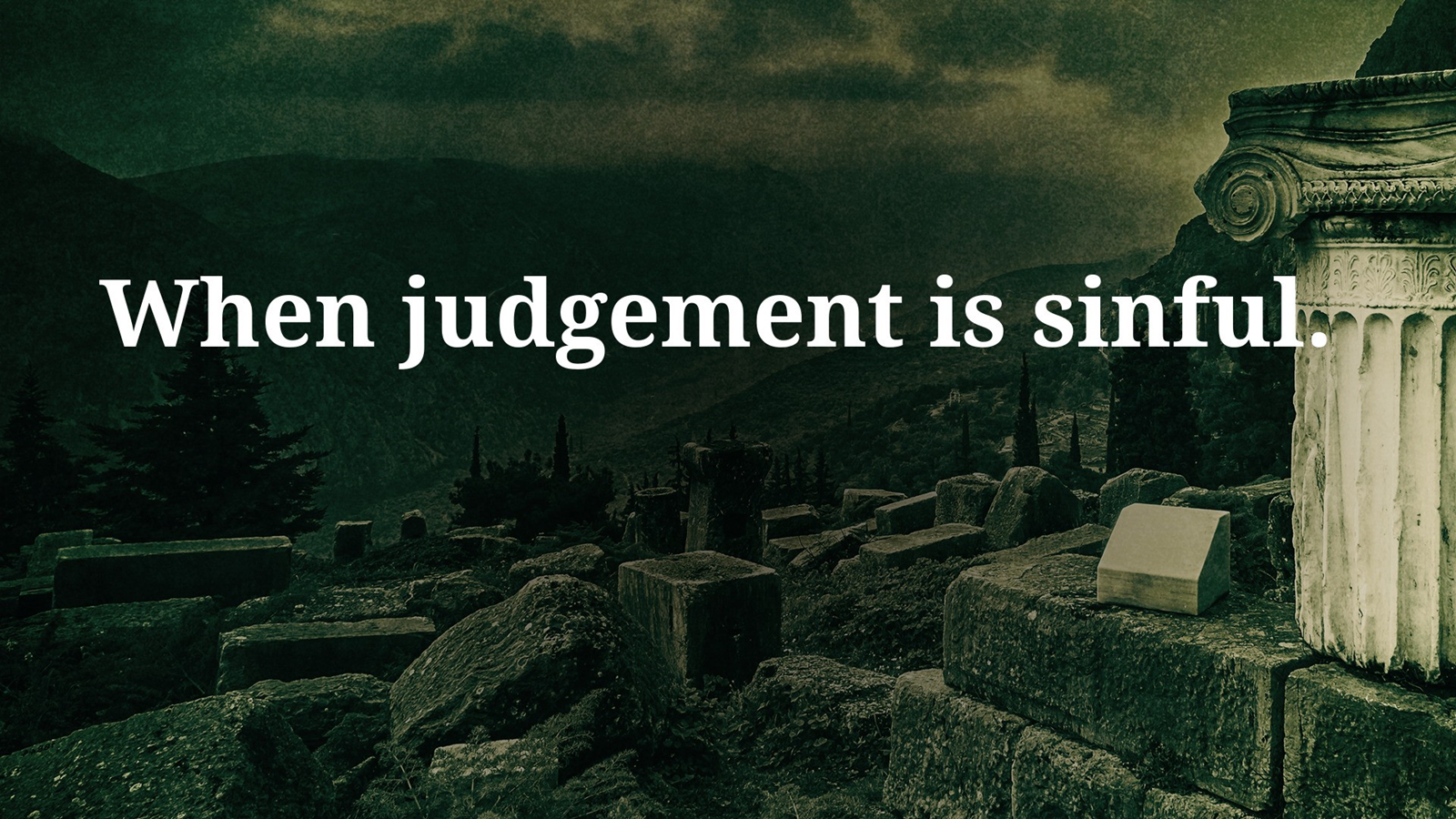
When Judgement is Sinful

Introduction
The human heart has a tendency to set itself up as the standard for what is right or wrong.
We make judgment calls based upon feelings, desires, preferences, denominational beliefs, legalistic standards or traditions.
Not only that, but they were also very quick to want to know and find out the faults of others.
But when you condemn or judge others, you often acquire greater freedom to sin yourself.
We act like a judge of others yet do not first judge ourselves.
God’s word addresses this tendency in our hearts to be hypocritical judges.
Our passage this morning confronts hypocritical judgment while calling the disciple of Jesus to discernment when you encounter people who show a disregard for or a disdain to God’s word.
Historical Background
Mathew had a twofold purpose in writing this book.
- To prove that Jesus is the Messiah King
- To explain God’s kingdom program to his readers.
The Sermon on the Mount reveals how those in His kingdom, His disciples, should live and act.
In Matthew 5:2-12, Jesus began His sermon by describing the qualities of a disciple that brings joy.
- In Matthew 4:13-16 He revealed the core ministry of the disciple.
- In Matthew 5:17-20 He revealed the foundation for the disciple’s ministry.
- In Matthew 5:21-48 Jesus revealed the need for perfect righteousness.
- In Matthew 6:1-18 Jesus focused on the acts of righteousness revealing the importance of correct heart motives.
- In Matthew 6:19-24 He confronted the materialistic heart
- In Matthew 6:25-34 He confronted the worrying heart
- Finally in Matthew 7:1-6 Jesus confronted the hypocritical judging heart.
Proposition
4 Restrictions for Judging Others that Protect You from Hypocritical Judgment.
